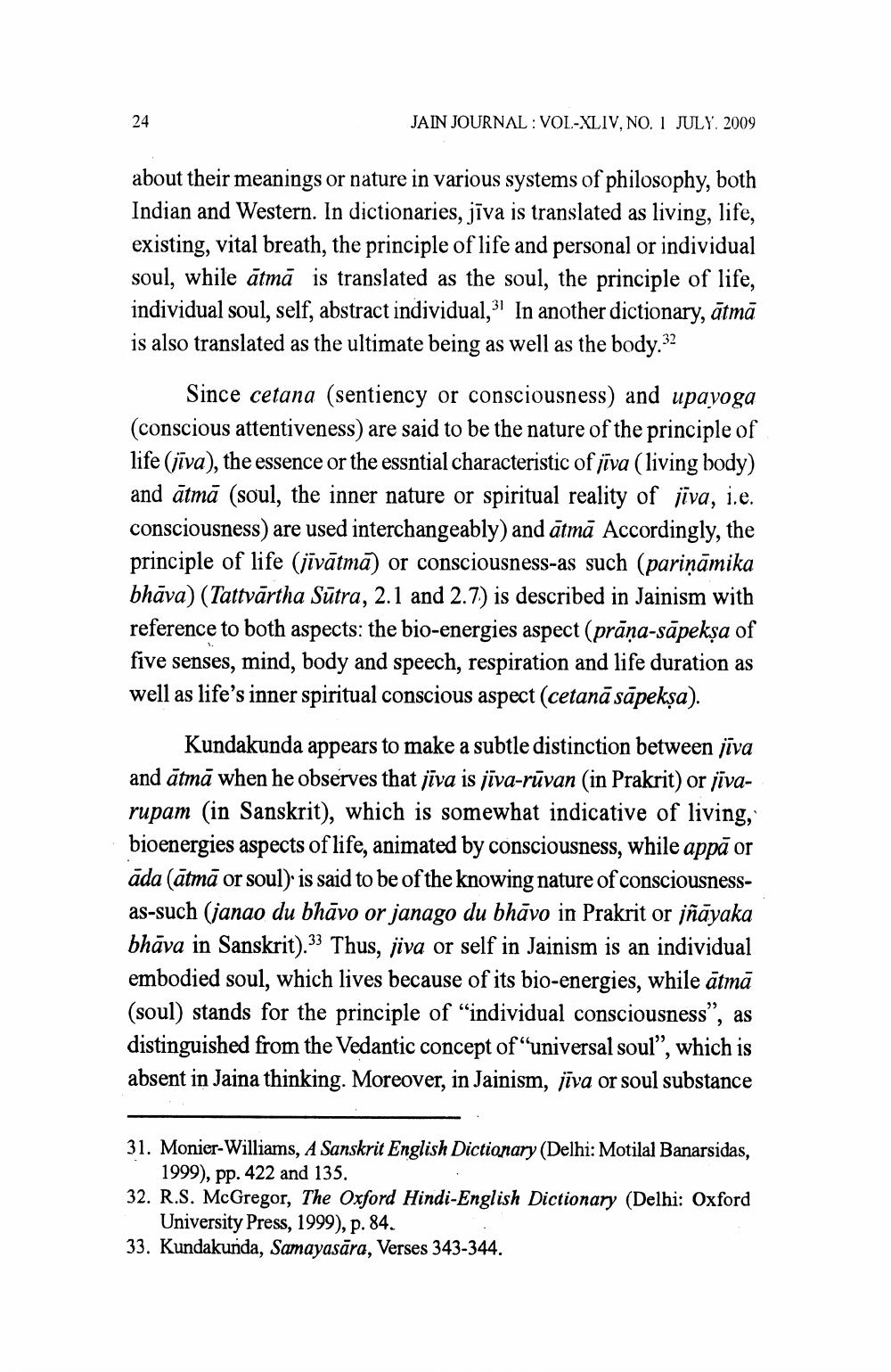________________
24
JAIN JOURNAL: VOL-XLIV, NO. 1 JULY 2009
about their meanings or nature in various systems of philosophy, both Indian and Western. In dictionaries, jīva is translated as living, life, existing, vital breath, the principle of life and personal or individual soul, while ātmā is translated as the soul, the principle of life, individual soul, self, abstract individual,' In another dictionary, ātmā is also translated as the ultimate being as well as the body.32
Since cetana (sentiency or consciousness) and upayoga (conscious attentiveness) are said to be the nature of the principle of life (jīva), the essence or the essntial characteristic of jīva (living body) and ātmā (soul, the inner nature or spiritual reality of jīva, i.e. consciousness) are used interchangeably) and ātmā Accordingly, the principle of life (jīvātmā) or consciousness-as such (pariņāmika bhāva) (Tattvārtha Sūtra, 2.1 and 2.7) is described in Jainism with reference to both aspects: the bio-energies aspect (prāņa-sāpekṣa of five senses, mind, body and speech, respiration and life duration as well as life's inner spiritual conscious aspect (cetanā sāpekṣa).
Kundakunda appears to make a subtle distinction between jīva and ātmā when he observes that jīva is jīva-rūvan (in Prakrit) or jivarupam (in Sanskrit), which is somewhat indicative of living, bioenergies aspects of life, animated by consciousness, while appā or āda (ātmā or soul), is said to be of the knowing nature of consciousnessas-such (janao du bhāvo or janago du bhāvo in Prakrit or jñāyaka bhāva in Sanskrit).33 Thus, jiva or self in Jainism is an individual embodied soul, which lives because of its bio-energies, while ātmā (soul) stands for the principle of “individual consciousness”, as distinguished from the Vedantic concept of "universal soul”, which is absent in Jaina thinking. Moreover, in Jainism, jīva or soul substance
31. Monier-Williams, A Sanskrit English Dictionary (Delhi: Motilal Banarsidas,
1999), pp. 422 and 135. 32. R.S. McGregor, The Oxford Hindi-English Dictionary (Delhi: Oxford
University Press, 1999), p. 84. 33. Kundakunda, Samayasāra, Verses 343-344.




